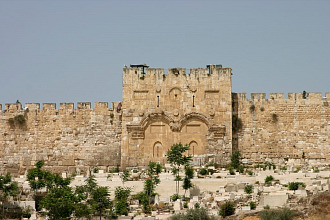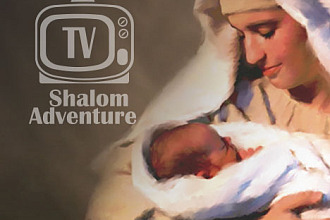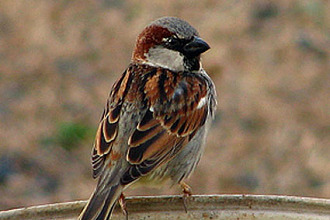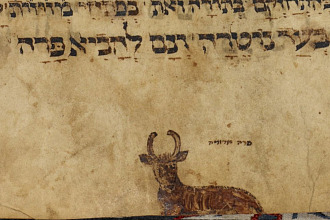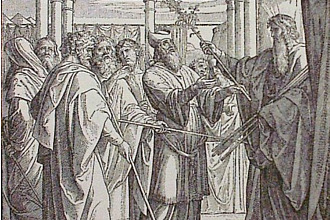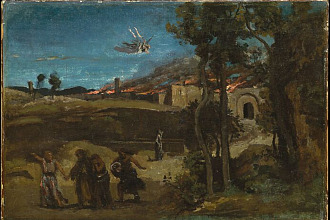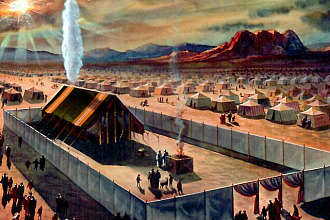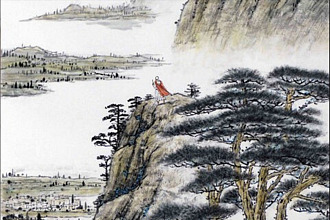Parasha for the Week: Bemidbar: Numbers 1:1 – 4:20
Haftarah: Hosea 2:1 – 22
Besorat Yeshua: Mark 3:31 – 4:9
Overview:
The Book of Bemidbar — "In the desert" — begins with G-d commanding Moshe to take a census of all men over age twenty — old enough for service.
The count reveals just over 600,000. The levi'im are counted separately later because their service will be unique. They will be responsible for transporting the Mishkan (sanctuary) and its furnishings and assembling them when the nation encamps.
The 12 Tribes of Israel, each with its banner, are arranged around the Mishkan.
Since Levi is singled out, the tribe of Yosef is split into two tribes, Ephraim and Menashe.
When the nation travels, they march in a formation similar to the way they camp.
A formal transfer is made between the first-born and the levi'im. The levi'im take over the role the first-born would have had serving in the Mishkan if not for the sin of the golden calf.
The transfer is made using all the 22,000 surveyed levi'im from one month old and up.
Only levi'im between 30 and 50 will work in the Mishkan.
The remaining first-born sons are redeemed with silver.
The sons of Levi are divided in three main families, Gershon, Kehat and Merari.
The family of Kehat carried the menorah, the table, the altar and the holy ark. Because of their utmost sanctity, the ark and the altar are covered only by Aharon and his sons, before the levi'im prepare them for travel.
"Lineage"
The Torah states, "with you shall be one man from each tribe, each man should be the head of his family." (Numbers 1:4). Rabbi Moshe Chaifetz, elucidates every person should be the head of his family's lineage. He should be an elevated person in his own right rather than depend upon the stature of his ancestors for his status and sense of self-worth. We should live our life so that our descendants will be proud to consider us their ancestor!
"Be Humble in Order to Receive Wisdom"
The Torah states: "the Almighty spoke to Moshe in the wilderness of Sinai." (Numbers 1:1) Why does the Torah specify "the wilderness" of the Sinai desert? The Midrash Bemidbar Rabbah comments on this verse, "Whoever does not make himself open and free like a wilderness will not be able to acquire wisdom and Torah." This refers to having the trait of humility, which allows a person to learn from everyone and to teach everyone. An arrogant person will only be willing to learn from someone he feels is befitting his honor. A humble person is only concerned with gaining Torah knowledge and will be grateful to learn new ideas even from one who has less overall knowledge than himself. The Midrash teaches that the Torah was given on Mt. Sinai because Mt. Sinai was the lowest of all the mountains. This symbolizes that if a person wants to receive wisdom he must be humble. If he is full of himself there is little room for anything else.
Haftarah: Hosea 2:1 - 22
Haftara: Hosea is a man who loves his people. His wife is unfaithful. Speaking to this children, he said to them: "Plead with your mother, plead—for she is not my wife, and I am not her husband—that she put away her whoring from her face, and her adultery from between her breasts," (Hos. 2:2). His wife become an illustration of the unfaithfulness of Israel. Hosea says to his wife the words G-d addresses to Israel, "Now I will uncover her shame in the sight of her lovers, and no one shall rescue her out of my hand. I will put an end to all her mirth, her festivals, her new moons, her Sabbaths, and all her appointed festivals." (Hos. 2:10-11). What a wonderful love. In spite of her unfaithfulness he wants to love her, "Therefore, I will now allure her, and bring her into the wilderness, and speak tenderly to her." (Hos. 2:14). The Bible is also a romantic book. "From there I will give her vineyards, and make the Valley of Achor a door of hope." (Hos. 2:15). It is clear that Hosea's wife represents Israel. "There she shall respond as in the days of her youth, as at the time when she came out of the land of Egypt." (Hos. 2:15). Then the prophet plays with Hebrew words, the Hebrew word Baal means "husband" or "master" and it is also the name of an idol worshiped by Canaanite people. "On that day, says the LORD, you will call me, "My husband," and no longer will you call me, "My Baal." (Hos. 2:16). All idols will be removed. "For I will remove the names of the Baals from her mouth, and they shall be mentioned by name no more." (Hos. 2:17). And will make a covenant with Israel. "I will make for you a covenant on that day with the wild animals, the birds of the air, and the creeping things of the ground; and I will abolish the bow, the sword, and war from the land; and I will make you lie down in safety." (Hos. 2:18). What a wonderful promise for Israel in this text. "And I will take you for my wife forever; I will take you for my wife in righteousness and in justice, in steadfast love, and in mercy. I will take you for my wife in faithfulness; and you shall know the LORD. (Hos. 2:20-21).
Besorat Yeshua: Mark 3:31 – 4:9
Parasha: At the beginning of the book of Numbers, Moses counts the people of Israel and organizes the tribes for their setting around the sanctuary and for their march. "Take a census of the whole congregation of Israelites, in their clans, by ancestral houses, according to the number of names, every male individually; from twenty years old and upward, everyone in Israel able to go to war." (Numbers 1:3).
Besorah: Yeshua demonstrates who are members of his family and his people. "Then his mother and his brothers came; and standing outside, they sent to him and called him. A crowd was sitting around him; and they said to him, "Your mother and your brothers and sisters are outside, asking for you." And he replied, "Who are my mother and my brothers?" And looking at those who sat around him, he said, "Here are my mother and my brothers! " (Mark 3:31-34).
Yeshua explains who are His brothers: "Whoever does the will of God is my brother and sister and mother."" (Mark 3:16-19). Yeshua was a faithful Jew, he fulfilled all the prophecies and performed all the mitzvot of the Torah, thus everyone who wants to be His brother has to also follow God's will.
Yeshua like Moses was a great teacher "Again he began to teach beside the sea. Such a very large crowd gathered around him" (Mark 4:1). Yeshua knows how to adapt his teaching to his listeners, he is in the country side, near the sea. Many people in the crowd are farmers who work every day on agriculture and farming, that's why Yeshua uses a terminology they can understand... "Listen! A sower went out to sow. And as he sowed, some seed fell on the path, and the birds came and ate it up. Other seed fell on rocky ground, where it did not have much soil, and it sprang up quickly, since it had no depth of soil, when the sun came up it was scorched and withered away. Some fell among thorns and the thorns grew up and choked it and it yielded no fruit. And other fell on good ground and did yield fruit that sprang up and increased and brought forth some thirty, and some sixty, and some an hundred. " (Mark 4:4-8). What type of soil is our heart? Is God's Word, His seeds, falling on good soul and producing an increase or is God's word being stolen away by other interests, or does it have only a temporary effect on us, or are we distracted with other concerns which choke out our time with the Lord? We get to choose each day what type of soil our heart will be.





